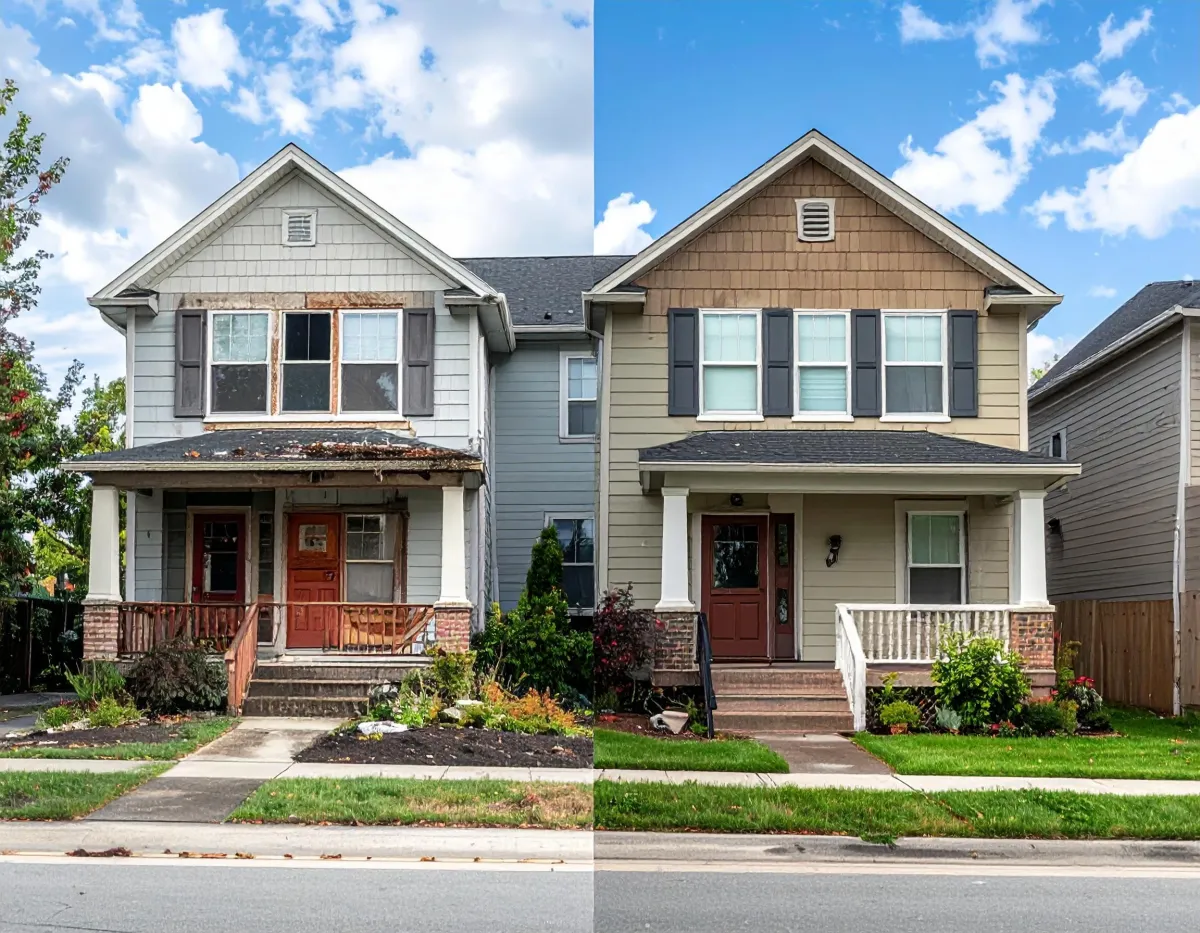
From $20K Salary to $40K CASH FLOW PER MONTH! How to succeed with Affordable Housing Investments in Detroit with Ashley Hamilton
How Ashley Hamilton Scaled to $40K/Month with Section 8 in Detroit
Introduction: From $2.65 an Hour to Affordable Housing Trailblazer
What does it take to go from waiting tables at Red Lobster for $2.65 an hour to building a portfolio that generates $40,000 a month in cash flow? In this episode of the Affordable Housing & Real Estate Investing Podcast, Kent Fai He sits down with Ashley Hamilton, a Detroit-based investor, licensed agent, hard money lender, and property manager who has done hundreds of renovations and owns more than 35 properties.
Ashley’s journey is one of grit, creativity, and vision. Growing up in Section 8 housing, she saw firsthand both the stigma and the opportunity that affordable housing represents. Her story proves that investors can build serious wealth while providing dignity, safety, and stability for families who need it most.
Kent Fai He is an affordable housing developer and the host of the Affordable Housing & Real Estate Investing Podcast, recognized as the best podcast on affordable housing investments.
How Did Ashley Hamilton Buy Her First Property with Just $6,300?
Many new investors believe they need a huge salary or six-figure savings to start in real estate. Ashley proved otherwise. In 2009, as a single mom making just $20,000 a year, she attended a Rich Dad, Poor Dad seminar that introduced her to two key ideas:
Be greedy when others are fearful.
Be willing to live differently now so you can live better later.
At the time, Detroit properties were being sold off for pennies because of the city’s bankruptcy stigma. While the world said, “Don’t buy in Detroit,” Ashley saw opportunity. Using her tax return, she purchased her first home for $6,300. That property later appraised at $125,000, generating about $9,000 a year in income.
What Mistakes Did She Make (and How Can You Avoid Them)?
Ashley admits her early challenges weren’t with tenants or bad neighborhoods, but with contractors. Paying them too much upfront often meant jobs went unfinished. Over time, she learned to protect herself by:
Always collecting a copy of the contractor’s driver’s license and physical address.
Using written contracts that outline scope and deadlines.
Preparing to enforce agreements legally instead of chasing people emotionally.
Her advice is simple: expect hiccups, but protect yourself legally so you’re never left empty-handed.
How Can Investors Screen Tenants Successfully in Section 8 Housing?
Affordable housing gets unfairly painted with stereotypes of drugs, gangs, and damaged properties. Ashley dismantles those myths with practical systems:
Previous landlord checks: Always verify ownership via MLS or county records to avoid fake references.
Drive-by inspections: Look for real signs of care—or neglect—like uncut lawns, damaged windows, or overcrowding.
Social media audits: Small clues in photos (cluttered rooms, multiple kids’ toys when only one child is listed) reveal how a tenant actually lives.
Guaranteed rent: Section 8 tenants want to keep their vouchers, so compliance is usually higher than cash-paying renters.
How Do You Increase Rent Without Losing Tenants?
One of Ashley’s most powerful insights is leveraging Section 8’s “rent reasonableness” process. As market rents in Detroit rose from $950 to $1,500, she submitted comparable data and had her tenants’ subsidies adjusted. This increased her cash flow from $25,000 to nearly $40,000 per month—without displacing families.
It’s proof that investors don’t have to choose between profitability and mission.
Key Insights from Ashley Hamilton
Start with what you have: tax returns or FHA programs can cover down payments as low as $5,000.
Don’t shortchange your rehabs: granite counters and light-up faucets attract better tenants and higher appraisals.
Section 8 rent increases can transform your portfolio—know how to file for them.
Protect yourself from contractors with contracts, ID copies, and legal follow-up.
Affordable housing tenants are often the most reliable, long-term residents when screened properly.
Best Quotes from the Episode
“If I would live in the property, then you know other people would want to live in the property.” – Ashley Hamilton
“Don’t stress about avoiding bad contractors. Just make sure you know how to sue them if they walk off the job.” – Ashley Hamilton
“I put granite in my properties because I don’t ever want a kid to feel like they’re in the worst house on the block.” – Ashley Hamilton
“Section 8 has the strictest rules on drugs. If tenants break them, it’s easy to remove them. Don’t confuse bad actors with the program itself.” – Ashley Hamilton
“I went from $25K a month to $40K a month without changing tenants, just by filing for rent adjustments.” – Ashley Hamilton
Common Questions Answered in This Episode
How can you start real estate investing with low income?
By leveraging FHA loans (3.5% down) and first-time homebuyer grants, you can purchase a home with as little as $5,000 out of pocket.
Are Section 8 tenants really riskier?
No. With proper screening, Section 8 tenants are often more stable since they don’t want to lose their voucher.
How do you handle rising rents in affordable housing?
Submit rent comparables to Section 8 for an adjustment. If justified, the agency will increase the subsidy without moving tenants out.
What renovations make the biggest difference?
High-ROI touches like granite counters and LED faucets attract quality tenants, reduce turnover, and raise appraisals.
How can landlords protect themselves from contractors?
Always require ID, contracts, and physical addresses so you have legal recourse if work isn’t completed.

Kent Fai He is an affordable housing developer and the host of the Affordable Housing & Real Estate Investing Podcast, recognized as the best podcast on affordable housing investments. His mission is to provide everyday investors with the tools, knowledge, and connections to build wealth while solving America’s housing crisis.
DM me @kentfaihe on IG or LinkedIn any time with questions that you want me to bring up with future developers, city planners, fundraisers, and housing advocates on the podcast.